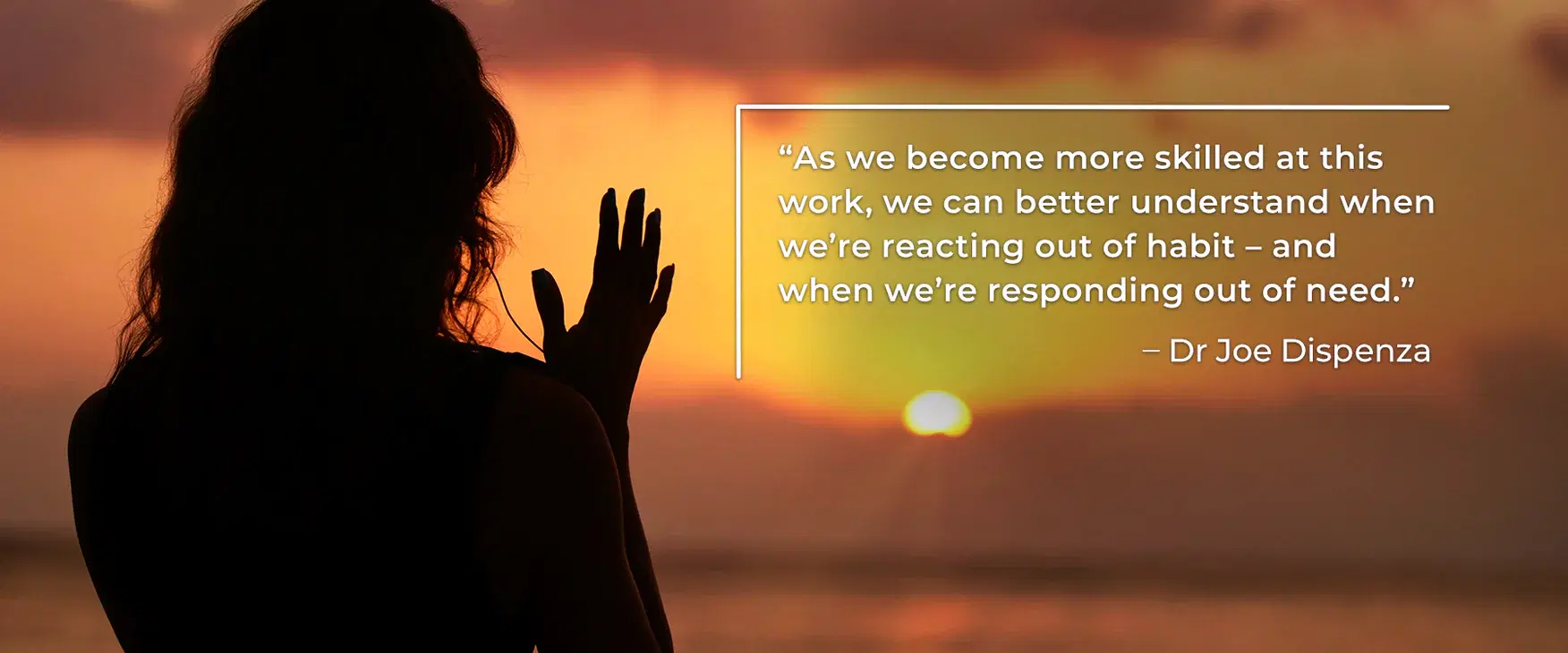The Value of Discomfort:
Part I
Dr Joe Dispenza | 31 January 2023
I’ve been thinking about a question I get asked a lot in this work. Usually, it’s a version of this:
“If I’m getting better, why do I feel so uncomfortable at times?”
All too often, we connect our thoughts about healing – or other reprogramming we’re working on, like abundance or change – with the idea that our progress is measured only in terms of comfort and ease.
But if we’re going to truly enter the river of change, it means we have to leave the known behind. And what is the known? The familiar. The predictable. The habitual. The known feels comfortable to us … even when it’s proven not to work.
Ultimately, then, embarking on a path of change means we’ve got to leave our old selves behind. As we change, we continually shed layers – thoughts, feelings, and behaviors that no longer serve us. It’s a biological death – the death of our old personality. And that can only be described as uncomfortable.
And so, this is the short version of the answer I give to anyone who asks me about where discomfort “fits” in their practice: We can be uncomfortable all the time.
And there are layers and depths to what it means to be uncomfortable – and how we’re meant to respond.
The Discomfort of Survival
Sometimes, we’re dealing with the discomfort of living in stress and survival. Something has put us on high alert: our child is sick with a dangerous fever. Our spouse has lost their job, and our family is in financial jeopardy. Flood waters are rising in our streets.
In these moments, we’re in fight-flight-freeze mode. We need to focus, concentrate, and use our pre-programmed survival instincts to protect ourselves and our loved ones. And, for the short-term, that’s a good thing – because we need more energy to respond to those circumstances.
A woman once approached me at a retreat, feeling sheepish about her state of mind. Her husband had come to her with a work emergency that happened to be in the exact area of her expertise as an attorney. And so, while most other event attendees had been asleep – resting their bodies and minds in preparation for the next day’s early morning meditation – she had stayed up all night writing an email, helping her husband receive the proper and just treatment for his situation.
For her family, it was a matter of survival. And when she told me about it, I reassured her: You did exactly what you should have done. Those stress hormones should have kept you awake and aroused – because you needed the energy to stay alert, respond, and see it through. Those chemicals are part of our biology for a reason. They give us the energy to "do something" about the problem at hand.
We often talk, in this work, about moving out of survival so we can create. But that doesn’t mean the survival state can’t serve us – when the situation calls for it. Sometimes, these short-term states are essential for our well-being.
This is a kind of discomfort meant to get our attention. Our heart and respiratory rates change. Our body produces the hormones of stress to mobilize energy. All systems move into the service of response – so we can stay safe. There are times when survival – and its attendant discomfort – is necessary.
Distinguishing Between Reaction and Response
If we constantly move into states of survival and stress in our lives, it becomes maladaptive – which leads to the discomfort of being out of balance all the time. When that occurs, it’s a problem – and we experience physical, mental, emotional, and chemical imbalance and disease.
As we become more skilled at this work, and become more attuned to our body’s signals, we can learn to distinguish between the two. We can better understand when we’re reacting out of habit – and when we’re responding out of need.
And there’s another kind of discomfort we’ll learn to recognize as we go deeper into the work. The kind that arises … because we’re truly changing.
I’ll talk about that important and necessary process in Part II.

Comments